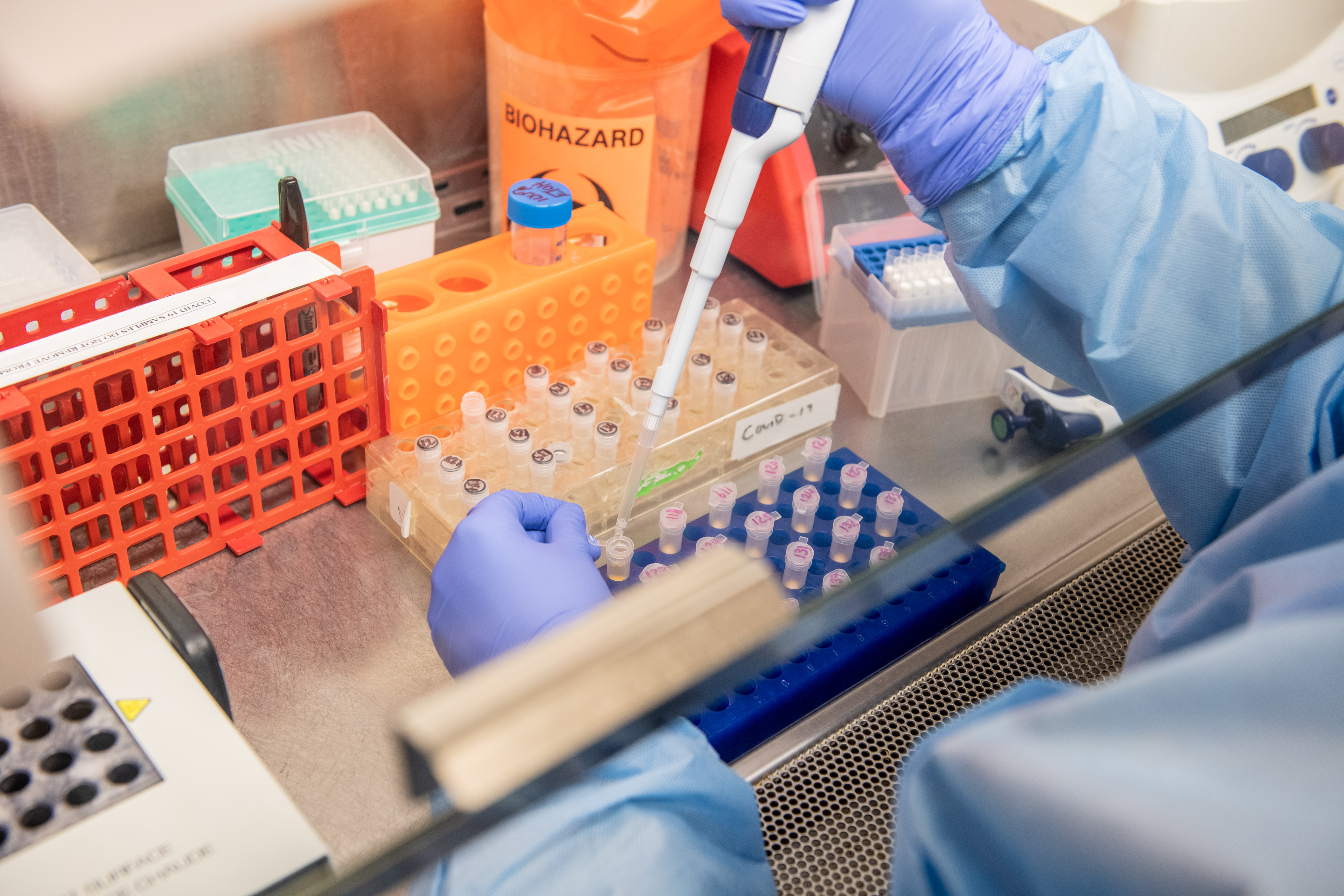At Northwestern Memorial Hospital, Michael Angarone treats patients suffering from COVID-19. He says the novel coronavirus’s spread and complications are more unpredictable than anything he’s seen in his career studying infectious diseases, including HIV/AIDS.
I recently spoke with Angarone about efforts to flatten the curve, if those staying at home still could contract coronavirus, and what drugs might work to treat the illness.
The number of cases and deaths might soar even though we have these isolation efforts in place to limit the spread of the virus. Can you tell me why those infections are expected to increase even with these stay-at-home orders?
We all have to think about the incubation period of this virus. If someone gets infected, it's still going to be between two and 10 days before they start to develop symptoms, and during that period there is going to be a short time where they could potentially transmit to other people, even after their symptoms develop. You have to wait for those periods to run their course, and then we'll start seeing the curve flatten. That's what we're waiting for.
Do we have any reasonable timeframes for how long these shelter-in-place orders or protective measures could last?
It's hard to fully predict. If we start seeing fewer cases, that's when we can start contemplating how we go back to going outside or socially interacting with everyone again. If we use China an example, they just started to think about how not to have strict shelter-in-place and social distancing. They're starting to let trains run again and have people go back to work, and they've been doing this since middle of January. We've been doing this now for a month, so that would mean we still have about another two months left if we start seeing things flatten out. It's hard to make the predictions until we see what the numbers start doing with all these interventions that we [currently] have. I think that gives people a false sense of hope for when it's going to end.
Are people who stay at home still at risk of getting the virus?
If they're not interacting with a lot of other people and not having people come visit them, and their household members are doing the same and healthy, their risk should be minimal. That's the whole point of sheltering-in-place, limiting your interactions with other people, and taking precautions, like washing your hands and staying away from people who might have a cough. The mask may have some added benefit.
Is someone contagious after they've gotten the coronavirus?
We know that people are contagious while they have symptoms. What we don't know fully is how long that contagious period lasts for. Those evaluations and studies are ongoing. We're still recommending that people keep in touch with their provider and keep us updated on what their symptoms are and as their symptoms improve.
We're trying to develop processes where we can keep people self-quarantined and wearing masks for a couple of weeks after their symptoms resolve. If resources increase, the CDC is also recommending repeat testing on people after they've recovered. Right now, that’s a difficult program to put into place because we're limited in the tests that we have.
Experts say that the vaccine can take up to 18 months to develop and test. With researchers around the world focused on this effort, and the timeframe for some clinical trials even accelerating, might we see a vaccine earlier than that 18-month estimate?
I think it's still going to take about 12 to 18 months. What we may start finding is data and information that the vaccine is viable, that it has efficacy. That's going to take three to six months. Right now, there are trials underway with people already getting vaccinated. We need to see how many ended up with infection, how many get protected, what were any adverse effects from that vaccine. Then, we have to know if it’s efficacious enough to start manufacturing that vaccine.
Having a vaccine in hand that we can start giving people is probably going to take, on the short end, probably 12 months. A lot of it is due to the manufacturing processes. These vaccines take a while to really ramp up. The demand for this vaccine is going to be pretty astronomical.
Some drugs have been touted as possible treatments at White House press conferences. Do we know if there are existing drugs out there that could help lessen the severity of the illness or have other benefits when it comes to infections?
There are numerous medications being evaluated. The one that everyone's talking about is the hydroxychloroquine with or without azithromycin. The evidence that we have is mostly anecdotal and points towards maybe decreasing the amount of virus shed, or the amount of virus within the nose that's being tested.
What we’re lacking is a lot of good clinical outcome data. If I gave this medication to a hundred people and compared it to a hundred people who got placebo, was there a dramatic difference in the clinical course and the infection? That's what we're missing right now. There's a mad rush to find something that works.



